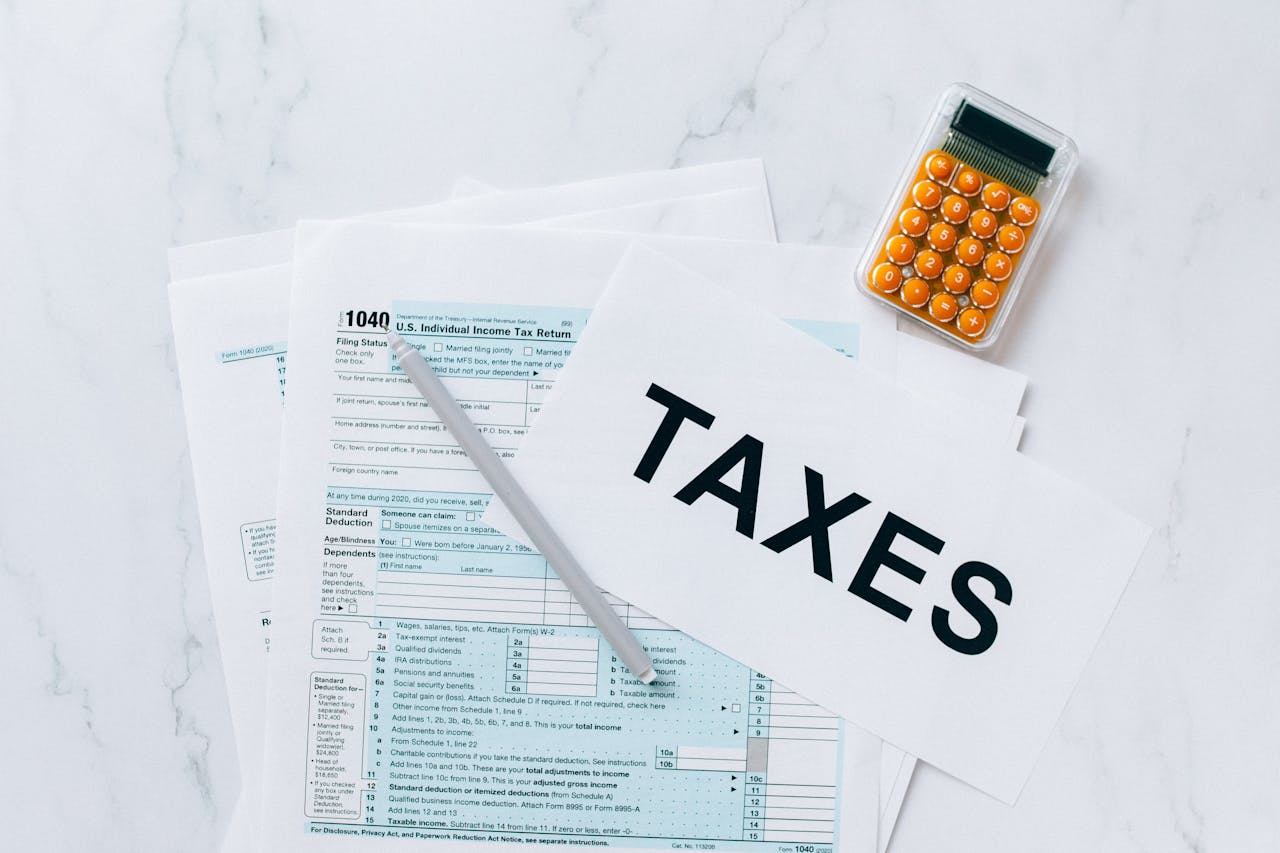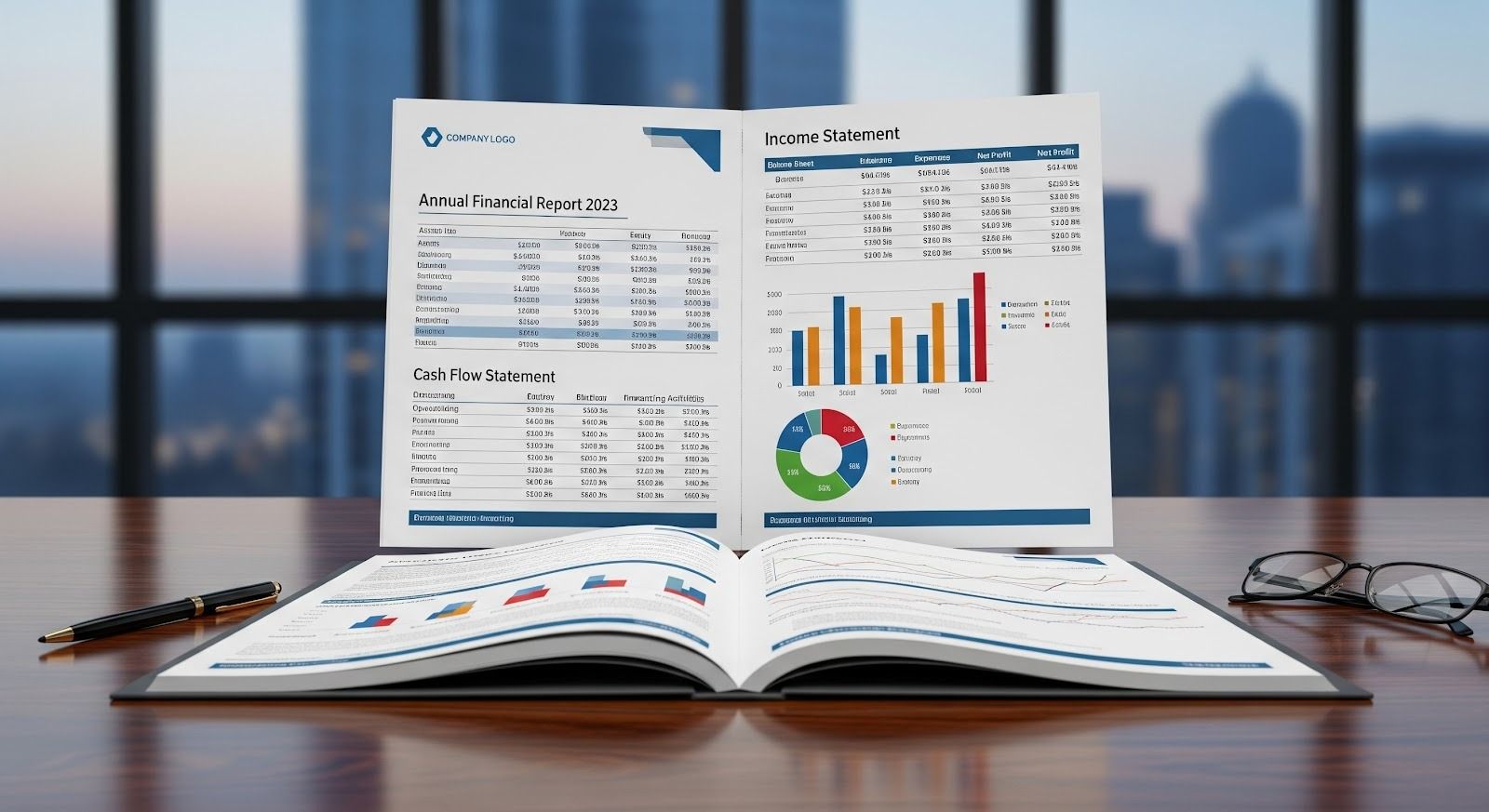Tax Time Survival Guide: What You Need to Know This Year
Nate Holland · Aug 11, 2025 · 10 min read

Okay, let's talk about tax time, realistically, tax time comes in like clockwork every year, leaving many of our Aussies scratching their heads and rummaging through drawers for receipts! If you're anything like me, just the thought of tax fills your mind with endless forms, indecipherable jargon, and one hope for a decent payday.
As in many years, this year also comes with a fair few positives. Be it your salaries, your self-employment earnings, or your property investment, this survival guide is all about equipping you with the must-knows to get through, and even prosper, this tax time. We shall run through the new updates, tips on how best to increase your returns, and how to avoid pitfalls. By the end of it all, you will feel tenneresque: a tax ninja instead of a bewildered beginner. Let us get started!
What's New This Tax Year
Each year shows some alterations to the tax landscape, and the year 2025 is no different. The big news for the 2024-25 income year is the revamping of the Stage 3 tax cuts, which came into effect on 1 July 2024. These aren't your average tax adjustments, they're supposed to put more money back into the everyday Aussie wallet, especially for the middle-income segment.
First up, the tax-free threshold remains at $18,200, but the rate for those who earn between $18,201 and $45,000 now stands at 16 percent, a bargain compared to the 19 percent previously applicable. Then, the 30 percent bracket applies up to $135,000, down from the previous 32.5 percent starting at $45,001. Those higher earners will see the 37 percent rate kicking in from $135,001 up to $190,000, with 45 percent above that.
And that means what for you? Well, if you earn something like $50,000 right now, you could expect several hundred dollars in your refund or maybe a decreased tax bill. The government tried to frame these modifications as cost-of-living relief, and they are really timely with inflation still stinging.
In other updates, the Medicare levy low-income thresholds have also been raised, helping to shield lower earners from additional levies. The Superannuation Guarantee Contributions have also risen to 11.5% this year and will become 12% in the next financial year, good for your retirement nest egg, but make sure you disclose any personal contributions if you are claiming them as a deduction.
There are no massive overhauls in other domains, but be mindful of foreign income rules should there be overseas earnings; residency tests could trip you up. All in all, these changes incentivize return lodgement a little bit more, so don't procrastinate, self-lodgers have until 31 October unless they've engaged a tax agent.
Getting Your Ducks in a Row: Preparing Your Documents
Before you even think about firing up myTax or calling your accountant, organisation is the key to a smooth tax experience. Start by gathering all income statements, those PAYG payment summaries from employers should be available in your myGov account by mid-July. If you're a gig worker or have multiple jobs, chase down any invoices or platform reports from the likes of Uber or Airtasker. Don't forget bank statements for interest earned, dividend statements from shares, and rental income details if you're a landlord.
Receipts are important when claiming deductions. Keep them all year long by using apps such as the ATO's own tool to keep things digital and easy to access. If you have worked from home, log your hours or work out the portion of your home used; records must substantiate claims. Also, be sure to check that any government payments from Centrelink or Services Australia are accurately pre-filled in myGov. And if you've sold assets such as crypto or shares, get those transaction records to calculate capital gains, the ATO is getting smarter by matching data, so be honest.
A bit of a pro tip: Keep a folder or a digital drive reserved for tax stuff all year long, there's nothing glam about it, but it will save you hours of frantic searching come August. If you're new, the ATO's online guides are your best friend, they walk you through pre-fill options and might even point out potential errors pre-lodgement.
Making the Most Out of Your Deductions: Money You Might Be Leaving Behind

Deductions are the real magic, where work offsets income with expenses, creating a potential for increased refunds stretching into thousands. The golden rule? The expense has to be for work, and you need to keep records. So, for normal working folk, this includes union fees, upskilling courses, and trade tools. If sales is your trade, car expenses while using your car to visit clients might be in order by keeping a logbook or using the cents per kilometre method.
Post-pandemic, work-from-home claims remain really popular. You might apply the fixed rate of 67 cents per hour for electricity, internet, and stationery costs. Alternatively, if you have detailed bills, you can claim for your actual costs. Just make sure it's all strictly linked to earning income; otherwise, don't claim the whole home office because it's also your Netflix den.
Giving to charities is straightforward: it's deductible over $2 to any deductible gift recipient, but keep the receipts for anything larger. And also, home renovations should not be left out. If you have done up your place for work-related reasons (like a room renovated into an office), these costs might be deductible provided such expenses are not capital improvements that add value to the property. Do check the ATO guidelines to see if your project qualifies, as this could save you a heap of taxable income.
Property and Investment Advice for Savvy Aussies
If you are getting into the business of investing, then tax time is when you should ideally sit down and look over your portfolio to be certain of optimisation. A pliable sort is renting out a property, which, of course, has its nuance. The properties must cite income earned from all tenants, and deductibles include expenses like repairs to property, council rates, and interest on loans. Capital gains tax enters the picture whenever you sell, so do take good care to calculate your base cost to minimise it.
Then we have often forgotten depreciation upon the assets within your investment property, such as fittings, appliances, or sometimes even the building itself. Getting a valuation done by the professionals will assist you in unlocking huge claims over the years. If you are an investor in Melbourne and holding investment properties, you will want to have a tax depreciation schedule in Melbourne to maximise claims; bespoke reports from quantity surveyors specify what one can claim each year from potentially thousands of dollars on the tax return without having to sweat too much for it.
The distributions from shares and managed funds will be declared; however, the franking credits will most likely assist in offsetting the tax payable. Crypto holders, beware: ATO plushes crypto as property; hence, keep track of all trades! To this effect, using investment apps that generate tax reports is quite handy, as it will simplify the process greatly.
Common Pitfalls and How to Avoid Them
Even the most experienced can find a snag, so let's tip off some of these traps. A major one is misdeclaring deductions; the ATO data analytics are quite accurate and will flag mismatches with employer reports. Expenses have to be claimed fairly, if a laptop is 70% for work, you can only claim that much. Forgetting income is another big mistake, especially side hustles like selling on eBay or freelance work, which may require an ABN if you earn over $75,000 gross. Be careful not to double-dip with the work-from-home methods by mixing fixed rates with actual costs, and for couples, ensure that the same family expenses aren't claimed twice.
The fix? Review your return multiple times or use the ATO's checklists. If something does not feel quite right, lodge that amendment later, better safe than under audit.
When to Call in the Pros
Sometimes DIY isn't feasible. Complex issues with multiple income streams, foreign assets, or operating a business could work to your advantage if a registered accountant-cum-tax agent takes on your case. They also enjoy deferred filing deadlines, typically until May of the following year.
Go to somebody that has worked with people with similar work. For example, property owners should go to a registered tax agent familiar with depreciation and negative gearing. A worthwhile fee if they find deductions you overlooked. In a friendly setting, they will also have the time to advise you throughout the year to streamline your finances in preparation for the next round of returns.

